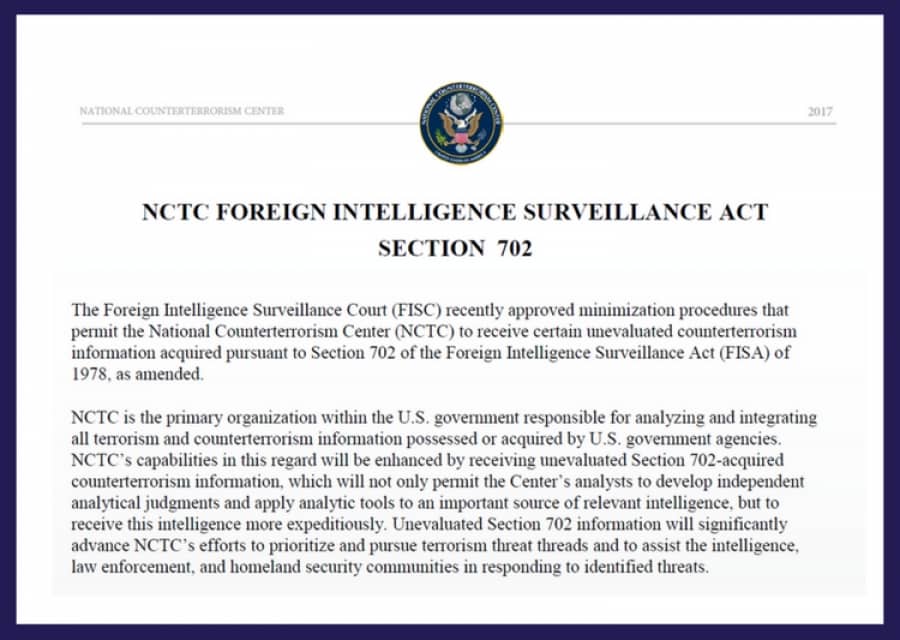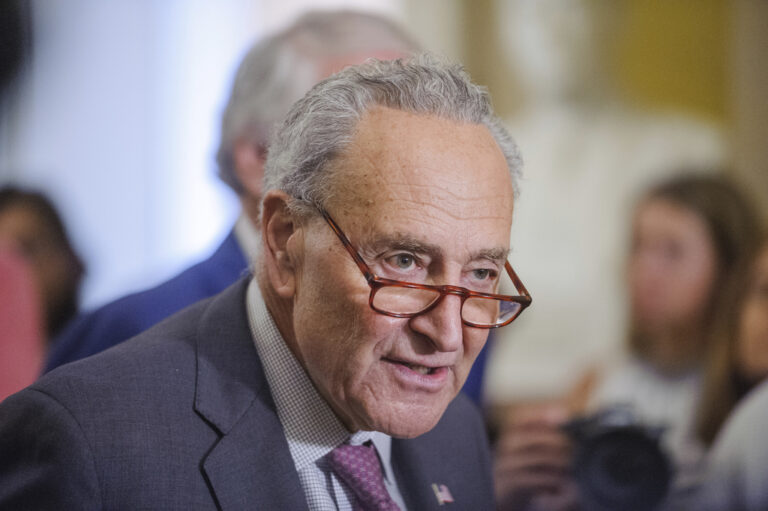The nation’s top intelligence and law enforcement officials implored Congress on Thursday to reauthorize a foreign intelligence program before it expires on Dec. 31, saying if lawmakers don’t act, it will be harder to detect plots against the United States.
“Let us be clear: If Congress fails to act, vital intelligence collection on international terrorists and other foreign adversaries will be lost. The country will be less secure,” the officials said in a rare joint statement.
The warning came as squabbling lawmakers were expected to include a short-term extension of the surveillance program in a spending bill to avert a government shutdown. A coalition of congressional Republicans and Democrats as well as privacy advocacy groups had opposed legislation that would approve the program for four more years.
But the officials derided a temporary extension, saying it would fail to provide certainty and “create needless and wasteful operational complications.”
House and Senate committees have passed various versions of what is known as Section 702 of the Foreign Intelligence Surveillance Act. The program permits targeted surveillance on foreign persons located outside the United States.
“If Congress fails to reauthorize this authority, the intelligence community will lose valuable foreign intelligence information, and the resulting intelligence gaps will make it easier for terrorists, weapons proliferators, malicious cyber actors, and other foreign adversaries to plan attacks against our citizens and allies without detection,” the Trump administration officials said. The program “has been instrumental in preventing attacks on the homeland and removing terrorists from the battlefield.”
The statement was signed by Dan Coats, the director of national intelligence, Attorney General Jeff Sessions, CIA Director Mike Pompeo, FBI Director Christopher Wray and Adm. Mike Rogers, the head of the National Security Agency.
The officials said that although the program would not actually cease to operate until April 2018, intelligence officials would have to start winding it down well in advance.
“Winding down such a valuable program would force agencies to divert resources away from addressing foreign threats,” they said.
(AP)











